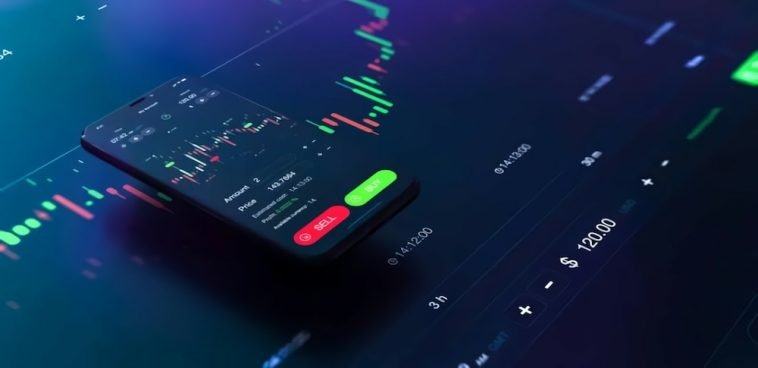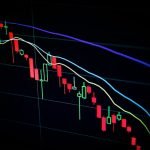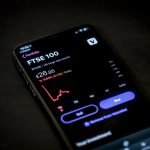Introduction.
When it comes to forex trading, finding the right broker is one of the most important decisions you’ll make. Choosing the wrong one can lead to not just frustration, but potentially significant financial loss.
So, how can you be sure that the forex broker you’re thinking about working with is legitimate? How do you know they’re not just out to take your money and run?
You might be surprised to learn that the forex market is actually one of the largest financial markets in the world. It’s estimated that over $6 trillion are traded every day!
This means it’s a space that attracts plenty of brokers, and unfortunately, not all of them are trustworthy.
In this post, I’m going to break down the easiest ways to figure out if a forex broker is legit and what warning signs to look out for.
What Makes a Forex Broker Legit?
The first thing to keep in mind is that a legitimate forex broker will be regulated. This is one of the most important things to check.
Regulation means that the broker is held to certain standards and must follow rules designed to protect traders like you. If a broker isn’t regulated, that should be a huge red flag.
Here are a few things to consider when figuring out if a broker is legitimate:
1. Regulation by Trusted Authorities.
Legit brokers are usually regulated by well-known authorities like the UK’s Financial Conduct Authority (FCA), the U.S. Commodity Futures Trading Commission (CFTC), or the Australian Securities and Investments Commission (ASIC).
These organizations ensure that brokers follow rules that protect traders’ interests. Always check the broker’s website or directly contact them to confirm which authorities regulate them.
2. Transparency.
A trustworthy broker will always be upfront with their trading conditions, fees, and spreads. If a broker seems to be hiding information or is vague about key details, it’s a clear warning sign.
A legitimate broker will make sure you have access to all the necessary info, such as withdrawal and deposit processes, trading platforms, and any fees associated with transactions.
3. Customer Support.
One of the best ways to test a broker’s legitimacy is to reach out to their customer service team. Are they responsive?
Do they answer your questions? Legit brokers will have a professional and helpful customer support team available through multiple channels (phone, email, live chat).
If you’re getting one-word answers or, worse, no response at all, that’s a huge red flag.
4. User Reviews and Reputation.
Checking user reviews and ratings is another great way to get a feel for a broker’s reputation. Sites like Trustpilot, Forex Peace Army, or other trader forums can offer real feedback from actual users.
While no broker is perfect, if there’s a consistent pattern of negative reviews, that should raise your concern.
5. Avoid Unrealistic Promises.
If a broker promises huge returns or claims that you can make a ton of money with little effort, that’s a big warning sign.
Legitimate brokers don’t make these kinds of bold claims. Trading forex comes with risks, and if a broker is promising guaranteed profits, they are most likely trying to lure you into a scam.
6. Deposit and Withdrawal Conditions.
When you deposit your funds with a broker, you should be able to withdraw them just as easily when you’re ready.
Be cautious of brokers who make it difficult to withdraw money or put up unnecessary hurdles. Some shady brokers use complicated withdrawal processes to trap your money. Legit brokers make it simple and transparent.
7. Trading Platform and Tools.
A good broker will offer a reliable and user-friendly trading platform, like MetaTrader 4 or MetaTrader 5, which are widely recognized and respected in the industry. Make sure the broker offers all the tools you need to make informed trading decisions, such as real-time charts, technical analysis tools, and educational resources.
How To Spot A Scam Broker
While there are plenty of legit brokers out there, there are also scammers who are looking to take advantage of new or inexperienced traders. Here are some common warning signs of a scam broker:
- Lack of Regulation: If the broker isn’t regulated by a reputable authority, you’re taking a huge risk. Regulation is key to ensuring your funds are protected.
- Promises of ‘Too Good to Be True’ Profits: As mentioned, if something seems too good to be true, it probably is. Be wary of brokers offering unrealistically high returns or guaranteed profits.
- Unclear Fees or Terms: If the broker is vague about their fees or terms, it’s a sign that they may be hiding something. A legitimate broker will provide clear, understandable details.
- Difficult Withdrawals: If you can’t withdraw your money easily or face long delays, this is a huge red flag.
- Unprofessional Website: Scam brokers often have poorly designed websites with broken links, vague content, or suspiciously low-quality graphics. If a website looks untrustworthy, it might be a scam.
FAQs
Q: Is it possible to find a completely risk-free broker?
Unfortunately, there’s no such thing as a completely risk-free broker. Trading forex always involves risk, but a legit broker will ensure that your money is safe, and they’ll offer transparency about the risks involved.
Q: Can I trust brokers with a no-deposit bonus?
Some brokers offer no-deposit bonuses, but these can sometimes be a tactic to get you to trade more often or open an account with them. Always read the fine print carefully before accepting a bonus, as there may be hidden terms that make it difficult for you to withdraw the bonus or any profits made from it.
Q: How do I know if a broker is regulated?
Most legit brokers will proudly display their regulatory information on their website. You can also look up the regulatory authority’s website and search for the broker’s name to verify if they’re licensed.
Q: Are there any red flags that suggest a broker is a scam?
Yes! Unclear fees, slow withdrawal times, promises of guaranteed profits, and unregulated brokers are all big red flags that suggest a broker might be a scam.
Q: How do I report a scam broker?
If you believe you’ve fallen victim to a scam broker, you can report them to regulatory authorities like the FCA, ASIC, or CFTC. You can also share your experience on forums or review sites to help others avoid the same mistakes.
Conclusion
Knowing how to spot a legit forex broker can save you a lot of time, stress, and money. Always make sure to check for regulation, transparency, and a good reputation before committing.
There are many great brokers out there, so there’s no reason to settle for anything less than trustworthy.
With the right tools and knowledge, you can avoid scams and trade confidently. But before you jump in, take a moment to ask yourself:
Are you ready to start trading with a legit broker, or do you still have questions about what to look for?





GIPHY App Key not set. Please check settings